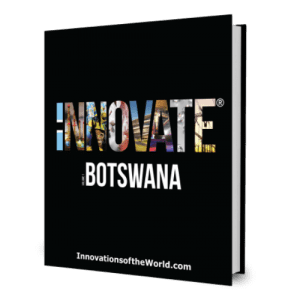BRIEF BACKGROUND
Botswana’s rags to riches economic success story is often compared to that of countries such as United Arab Emirates (UAE) and Singapore. A former British protectorate, Botswana was poor by all standards when it got its independence. By the early to mid 80s, the country’s mineral resource was clearly changing the course of the country. A country with a strong democratic culture and values, the country managed to escape the so called mineral curse where countries with considerable mineral wealth were often embroiled in conflicts and wars.

Fast forward to early 2000, the African region was battling the HIV/AIDS pandemic, and Botswana was one of the most negatively affected. By 2015, the United Nations Development Programme ranked Botswana 3rd in the Sub-Saharan Africa for its Human Development Index. This was a significant achievement given the challenges the country has had to face. During this period, Botswana enjoyed a strong economy, however, the country faced another challenge – overdependence on its staple industries of tourism, mineral extraction, and agriculture.
The country’s lauded success had not translated to reduced poverty and inequality or excessive dependence on Government to create employment. Landlocked, Botswana depended on its neighbours for information communication technologies (ICTs) especially broadband internet, and this was prohibitively expensive. Faced with these choices, Botswana decided to invest its wealth on science and technology to leverage sustainable economic growth and employment creation.
To achieve this, the country invested heavily in developing a robust ICT backbone infrastructure from Europe, traversing West Africa through to East Africa, all the way to Asia. This infrastructure would connect Botswana to access the global economies – from the established European economies to the rising Asian economies. However, the country’s efforts to move from its ‘economic’ comfort zone were sluggish, and so, efforts to spread information communication technologies were fragmented, and
the results, not very promising. What the country needed was an impetus that could ‘intentionalize’ all these aspirations. Enter the Botswana Communications Regulatory Authority (BOCRA) and the Universal Access and Service Fund (UASF).

BOTSWANA COMMUNICATIONS REGULATORY AUTHORITY (BOCRA)
The Botswana Communications Regulatory Authority (BOCRA/the Authority) was established by Act of Parliament, the Communications Regulatory Authority Act (CRA, 2012) to regulate the communications sector in Botswana. Our principal mandate is to further and protect the interests of consumers in relation to price, quality and safety of
communications services, and to further the interests of citizens and businesses in relevant markets, where appropriate, by promoting competition.
VISION
A Connected and Digitally Driven Society
VALUES
- Excellence
- Proactiveness
- Integrity
- People
Building on the achievements of Vision 2016, Botswana’s national vision aims to move Botswana’s economy to a higher income earner by 2036. To achieve this, Botswana recognizes that information communications technologies (ICTs) can lead to transformation and innovation of the economy. Yet, connectivity by itself is not enough. How do we create a culture of inclusive innovation and digital transformation?
The BOCRA Strategy (2019-2024) puts emphasis on infrastructure development, investment in services and applications, innovation and inclusive access to information and communication technologies. Yet, competition by itself is not enough as evidenced by the fact that profit making enterprises would not necessarily provide service to certain parts of the country that are considered non-profitable. To ensure that ICTs were made widely available to Batswana, BOCRA put together a special purpose vehicle that would involve a judicious mix of competition, public and private partnerships and effective regulation to achieve this dream.
UNIVERSAL ACCESS AND SERVICE FUND (UASF)
The CRA Act mandates BOCRA to ensure that all Batswana have access to basic and affordable communications services. By Notarial Deed of Trust, BOCRA established the Universal Access and Service Fund (UASF) to use levies imposed on proceeds from licensed communications services providers to operate a fund whose mandate is to extend to connectivity, computers and ICTs, and expansion of voice coverage for private broadcasters to unserved and underserviced areas within Botswana.
To date, the UASF has focused its intervention on providing communication services to underserved and unserved communities around the country.
In collaboration with BOCRA, the Ministry of Transport and Communications (MTC), the Ministry of Local Government and Rural Development (MLGRD), the Ministry of Basic Education (MoBE), the UASF has financed the Schools Connectivity and Computerization programme – bringing highspeed broadband internet and installation of ICTs to primary schools in rural and remote locations. In 2019, this partnership saw 68 schools in the rural and remote parts of the Kgalagadi, Mabutsane and Ghanzi regions benefit from the scheme. So successful was this project that Botswana has received recognition and accolades from the International Telecommunication Union (ITU), the Commonwealth Telecommunication Organisation (CTO) and benchmarking visits for innovative use of funding to democratize ICTs and contribute to employment creation.
Recently, this funding has been extended to the broadcasting sector where communities that have not had access to private broadcasters signal coverage are now able to enjoy broadcasting programmes due to development of infrastructure that allows these broadcasters to extend their signals to these regions.
The UASF has extended its sponsorship to extend private FM radio broadcasting signals to areas that have hitherto only received broadcasting from the state broadcaster, Radio Botswana and its commercial arm, RB2. Under this programme, villages such as Hukuntsi, Takatokwane, Malwelwe and others now have access to private broadcaster services.
So far, the Botswana success story has come across some challenges but has been well on its way. The COVID19 pandemic challenges the dream of a digital Botswana that we have envisaged. As the deficiencies and inequalities get clearer, this situation challenges and reframes what we had planned, and requires us as a nation to re-think, and re-imagine what it means to use ICTs to drive an inclusive, innovative digital society.
As we reflect on our past achievements over the years, we are confident that the shared vision of a digitally connected nation can still become a reality.














